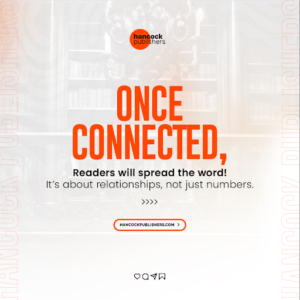12 Popular Types Of Children’s Books | Hancock Publishers

Children’s books come in all shapes, sizes, and stories! They take kids to magical lands, teach them important lessons, make them giggle, and even help them understand the world around them in a way that allows them to imagine the best of the best.
If you are a writer who wants to write more about Children’s books then knowing about the different types of them can be super exciting! Let’s discover the wonderful world of children’s literature and the many kinds of books waiting to be read.
1. Books with Illustrations
Picture books are some of the most beloved types of children’s books, and they are perfect for younger kids! These books have colorful illustrations and simple stories. The pictures help tell the story just as much as the words do.
Example:
One popular picture book is “Where the Wild Things Are“ by Maurice Sendak. It’s all about a boy named Max who sails to an island of wild creatures. The stunning artwork brings the story to life, making it a favorite for kids.
Why kids love picture books:
- Bright and fun illustrations!
- Easy-to-understand stories.
- Great for bedtime or Storytime with parents.
2. Board Books
Board books are designed especially for toddlers. They have thick, sturdy pages that are perfect for little hands to turn without tearing. These books are often filled with simple words and pictures to keep young children engaged.
Example:
The classic board book “Goodnight Moon” by Margaret Wise Brown is a sweet bedtime story that many kids enjoy before drifting off to sleep.
Why kids love board books:
- They’re easy to hold and flip through.
- The simple words and pictures make them perfect for learning.
- Toddlers can enjoy these books without worrying about damaging the pages.
3. Concept Books
Concept books are fun and educational at the same time! These books teach young readers about numbers, colors, shapes, the alphabet, and other basic concepts. They are perfect for kids who are just starting to learn about the world around them.
Example:
Eric Carle’s “The Very Hungry Caterpillar“ is a great concept book that teaches numbers, days of the week, and even the life cycle of a caterpillar!
Why kids love concept books:
- They are a fun way to learn new things.
- The illustrations are often colorful and engaging.
- Kids can read them over and over again and learn something new each time.
4. Early Reader Books
Once kids are ready to read on their own, early reader books are the perfect step! These books use simple words and short sentences, making it easy for young readers to follow along. Early-reader books often have fun stories with exciting characters.
Example:
Dr. Seuss’s “Green Eggs and Ham“ is a great example of an early reader book. It’s full of rhymes and repetition, helping young readers practice their reading skills while enjoying a silly story.
Why kids love early reader books:
- They feel proud reading on their own!
- The stories are short and exciting.
- Early reader books help them build confidence.
5. Chapter Books
Chapter books are a step up from early reader books. They have longer stories and are often divided into chapters, making them perfect for kids who are becoming more confident readers. These books usually don’t have as many pictures, but the stories are more detailed and fuller of adventure.
Example:
“Charlotte’s Web” by E.B. White is a classic chapter book about friendship, loyalty, and a special spider named Charlotte who helps save her friend Wilbur, the pig.
Why kids love chapter books:
- The stories are longer and more interesting.
- There are exciting adventures and new characters to discover.
- Readers get to use their imagination even more since there are fewer pictures.
6. Fairy Tales and Folktales
Fairy tales and folktales are stories that have been passed down through generations. They often include magical creatures, brave heroes, and important life lessons. These stories usually have a good versus evil theme, and many ends with a moral or a lesson to be learned.
Example:
“Cinderella”, “Little Red Riding Hood”, and “Jack and the Beanstalk” are classic fairy tales that have been retold many times, each with its unique twist.
Why kids love fairy tales:
- Magical adventures and exciting characters.
- The stories often have happy endings.
- Fairy tales teach important lessons about kindness, bravery, and honesty.
Planning on Edit Your Book?
7. Poetry Books
Poetry books for children are filled with fun rhymes, silly words, and rhythmic patterns. These books are great for kids who enjoy the sound of language and the rhythm of words. Some poems are short and sweet, while others might tell a funny or meaningful story.
Example:
Shel Silverstein’s “Where the Sidewalk Ends“ is a fantastic poetry book full of whimsical and imaginative poems that kids and adults both loves.
Why kids love poetry books:
- Poems are short and fun to read.
- The playful use of language makes it exciting.
- Some poems are silly and can make kids laugh!
8. Nonfiction Books
Nonfiction books teach kids about real people, places, animals, and events. These books are perfect for curious kids who love learning about the world around them. Nonfiction children’s books often include beautiful photographs or illustrations to help explain the information.
Example:
Books like “National Geographic Kids: Everything Dinosaurs“ provide young readers with fascinating facts and pictures about dinosaurs.
Why kids love poetry books:
- They learn amazing facts about their favorite subjects.
- The pictures and illustrations make learning fun.
- Kids can explore topics like space, animals, history, and more!
9. Biography Books
Biography books tell the true stories of famous or important people. These books are a great way for kids to learn about the lives of historical figures, athletes, scientists, and artists who have made a difference in the world. Biographies can be written in a way that is easy for kids to understand and often include pictures and illustrations.
Example:
“Who Was Martin Luther King, Jr.?” is part of the Who Was series, which introduces kids to important historical figures like Martin Luther King, Jr., Helen Keller, and Amelia Earhart.
Why kids love biography books:
- They get to learn about real people and their amazing achievements.
- It’s inspiring to read about heroes and how they changed the world.
- The stories show that anyone can make a difference.
10. Fantasy and Adventure Books
Fantasy and adventure books are full of imagination, magic, and excitement! These books transport readers to magical worlds where anything is possible. Whether it’s dragons, wizards, or enchanted forests, these stories are thrilling and captivating.
Example:
“Harry Potter and the Sorcerer’s Stone” by J.K. Rowling is a perfect example of a fantasy book. It’s all about a young boy who discovers he’s a wizard and goes on incredible adventures at a magical school.
Why kids love fantasy and adventure books:
- There are endless possibilities in these magical worlds.
- Readers can go on exciting quests and meet magical creatures.
- These books spark the imagination and take readers on thrilling journeys.
11. Mystery Books
Mystery books are all about solving puzzles and uncovering secrets. These books keep kids guessing until the very end! Whether it’s a missing object, a hidden treasure, or a strange occurrence, mystery books are full of suspense and excitement.
Example:
The “Nancy Drew and Hardy Boys” series are popular mystery books that feature young detectives solving intriguing cases.
Why kids love mystery books:
- They get to play detective and solve puzzles.
- The stories keep them on the edge of their seat.
- Kids love figuring out “whodunit” before the big reveal!
12. Graphic Novels
Graphic novels are like comic books but with longer, more developed stories. They are filled with colorful illustrations and speech bubbles, making them perfect for visual readers. These books can tell stories about anything from superheroes to school adventures.
Example:
The Dog Man series by Dav Pilkey is a popular graphic novel that kids love for its humor, action, and creative illustrations.
Why kids love graphic novels:
- The colorful artwork is fun to look at.
- It’s like reading a comic book but with longer stories.
- Graphic novels often have funny, exciting, or emotional plots.
Conclusion
At Hancock Publishers, we know that writing a children’s book requires understanding the different types of stories that resonate with young readers. Whether you’re writing a picture book, early reader, or chapter book, each type offers unique ways to engage children’s imaginations. Choosing the right format for your story is key to making a connection with your audience.
We support authors at every stage, from brainstorming ideas to completing your manuscript. Whether you’re writing your first children’s book or refining your skills, Hancock Publishers provides the tools and expertise to help bring your story to life.
FAQs
Subscribe to our Newsletter
Ready to turn your manuscript into an eBook?
Turn your ideas into a best-seller with Hancock Publishers!
Popular types of children’s books include picture books, board books, early reader books, chapter books, and graphic novels. Each type caters to different age groups and reading levels.
Picture books use colorful illustrations to help tell simple stories, ideal for younger children. Early reader books feature short sentences and simple words, designed for kids learning to read on their own.
Concept books, nonfiction books, and biography books are great for teaching kids about numbers, colors, history, science, and real-life figures, blending fun with learning.





